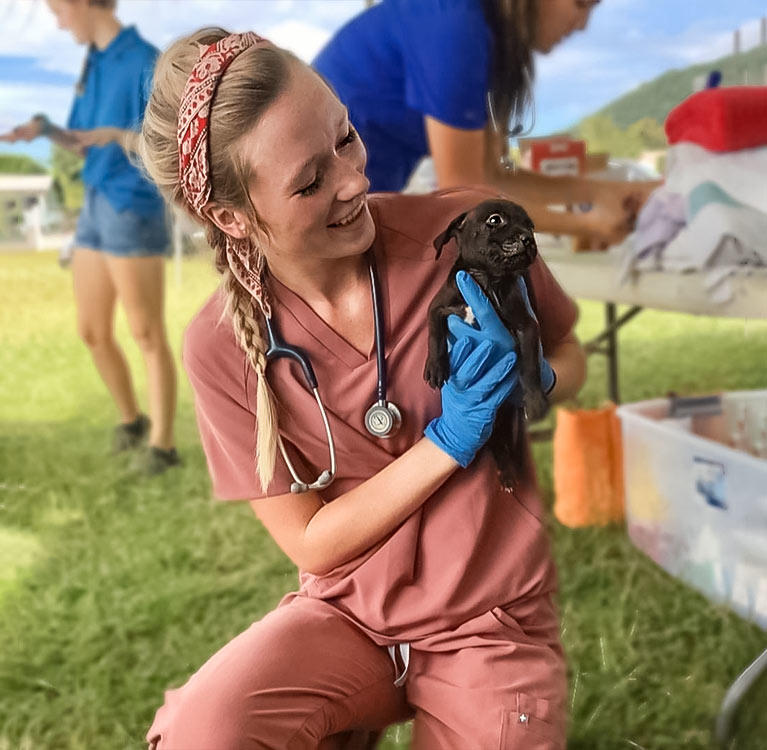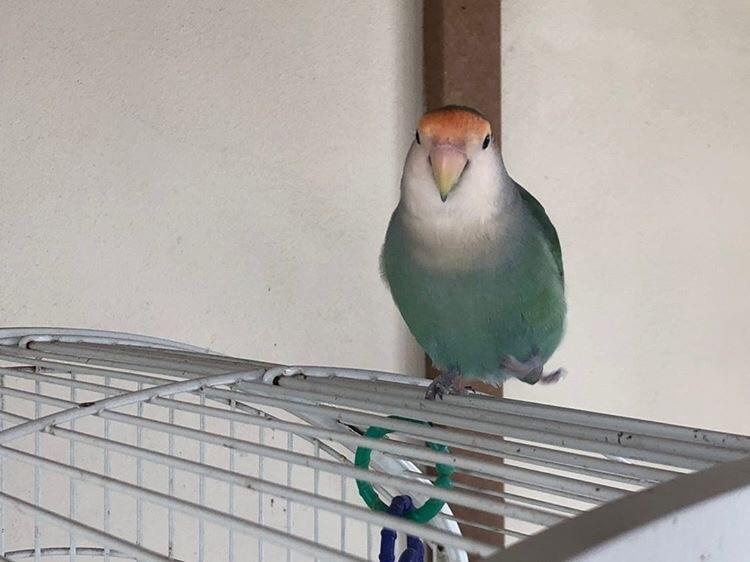If you’ve personally experienced dental problems, you know how painful they can be. But did you know that animals suffer from the same oral and dental ailments as people? Now imagine the pain of a cracked tooth without the ability to tell someone where it hurts! Enter the animal dentist, an essential member of any animal healthcare team.
Animal dentists, also called veterinary dentists, are veterinarians who have been trained to treat oral and dental issues in animals, from cavities to periodontal disease and beyond. They perform such tasks as regular dental cleanings, pulling teeth, and examining an animal’s oral cavity to check for injury or signs of disease.
What Do Veterinary Dentists Do?
If you like juggling multiple disciplines, veterinary dentistry might be for you. Veterinary dentists must be trained in medicine, animal dentistry, and surgery so that they can treat all types of dental issues. They must know how to use diagnostic tools, such as dental radiology and laboratory evaluations. They perform procedures and surgeries for such ailments as an abscessed tooth and gingivitis as well as tumor removal. And because animals are not likely to sit still for even minor dental procedures, they must be trained in the administration of anesthesia to ensure the safety of the animal.
There are many specialties within the field of animal dentistry, including the following:
- Endodontics: the treatment of dental pulp (the tissue in the center of the tooth). Common ailments include pulpitis (inflammation of the dental pulp), tooth abscesses, and structural fractures.
- Periodontics: the treatment of periodontal (gum) disease. Treatments include tooth scaling and polishing, root planing, gum surgery, guided tissue, and bone regeneration.
- Orthodontics: the correction of jaw misalignment. Common procedures include the application of orthodontic appliances and bite evaluations.
- Restorations such as applying metal crowns, fillings, bridges, and implants
- Dental radiology: tooth assessment; examination for dental disease, oral tumors, or fractures
- Oral surgery: extractions; correction of jaw fractures and palate defects; removal of oronasal fistulas, oral tumors, and dislocated teethOral disease: oral manifestations of systemic disease (disease that affects other parts of the body); oral autoimmune disorders
How to Become A Veterinary Dentist
To become a veterinary dentist, you must undergo extensive training in animal dentistry school to ensure quality care for animals. You have to successfully complete your Doctor of Veterinary Medicine (DVM) by attending a veterinary program accredited by the American Veterinary Medical Association (AVMA)—such as Ross University School of Veterinary Medicine’s (RUSVM) DVM degree program*. RUSVM runs an accelerated DVM program of 3.25 years, but most veterinary schools are four years.
After completing your DVM degree you must complete a three-year residency in veterinary dentistry under the supervision of a Diplomate Residency Doctor (a doctor who has board certification in a medical specialty). With fewer than 65 approved residency programs, obtaining a residency in animal dentistry is highly competitive, and the residency programs themselves are equally rigorous.
Residents must perform a minimum of 500 cases across categories, including endodontics, orthodontics, periodontal and oral surgery, prosthodontics (dental prosthetics), and oral medicine. An additional 120 hours are required for working directly with other veterinary specialists in radiology, surgery, and anesthesiology. Residents must also write multiple peer-reviewed articles that are approved for publication by the Journal of Veterinary Dentistry or comparable journal.
The American Veterinary Dental College (AVDC) is the specialist certification organization that conducts the credentials review and examination procedures for those seeking to become Board Certified Veterinary Dentists. Once you have met all of the above requirements and have been accepted by the AVDC Credentials Committee, you may then take the board examinations, which are one of the most difficult specialty examinations in veterinary medicine. They require extensive hours of studying and preparation, with a first-time pass rate of only 33 percent.
In Phase I of the examination, candidates take a written exam over the course of two days. If you pass Phase I, you may then take the Phase II exam, which is typically given six to seven months after Phase I. Over a two-day period, you must perform multiple procedures within a set time in order to demonstrate their proficiency in each discipline. A group of board-certified veterinary dentists and members of the AVDC review their performance to determine if they meet the AVDC’s standards.
If you pass the Phase II exam, you are now a board-certified veterinary dental specialist! With only around 200 board-certified veterinary dentists in the world, you’ve entered a select and exciting specialty in the world of veterinary medicine.
Ross University School of Veterinary Medicine provides an accelerated, broad-based curriculum that integrates unique research opportunities, classroom study, and hands-on clinical training. Take the first step on your path to becoming a vet dentist. Apply for admission to RUSVM.
Related resources:
*Ross University School of Veterinary Medicine confers a Doctor of Veterinary Medicine (DVM) degree, which is accredited by the American Veterinary Medical Association Council on Education (AVMA COE), 1931 N. Meacham Road, Suite 100, Schaumburg, IL 60173, Tel: 800.248.2862. For more information please visit: https://www.avma.org/education/accreditation-veterinary-colleges.
The AVMA COE uses defined standards to evaluate veterinary medical education programs, including facilities, clinical resources, curriculum, faculty, student outcomes and research programs. The standards are interpreted and applied by the AVMA COE-accredited veterinary medical education programs in relation to its mission.






